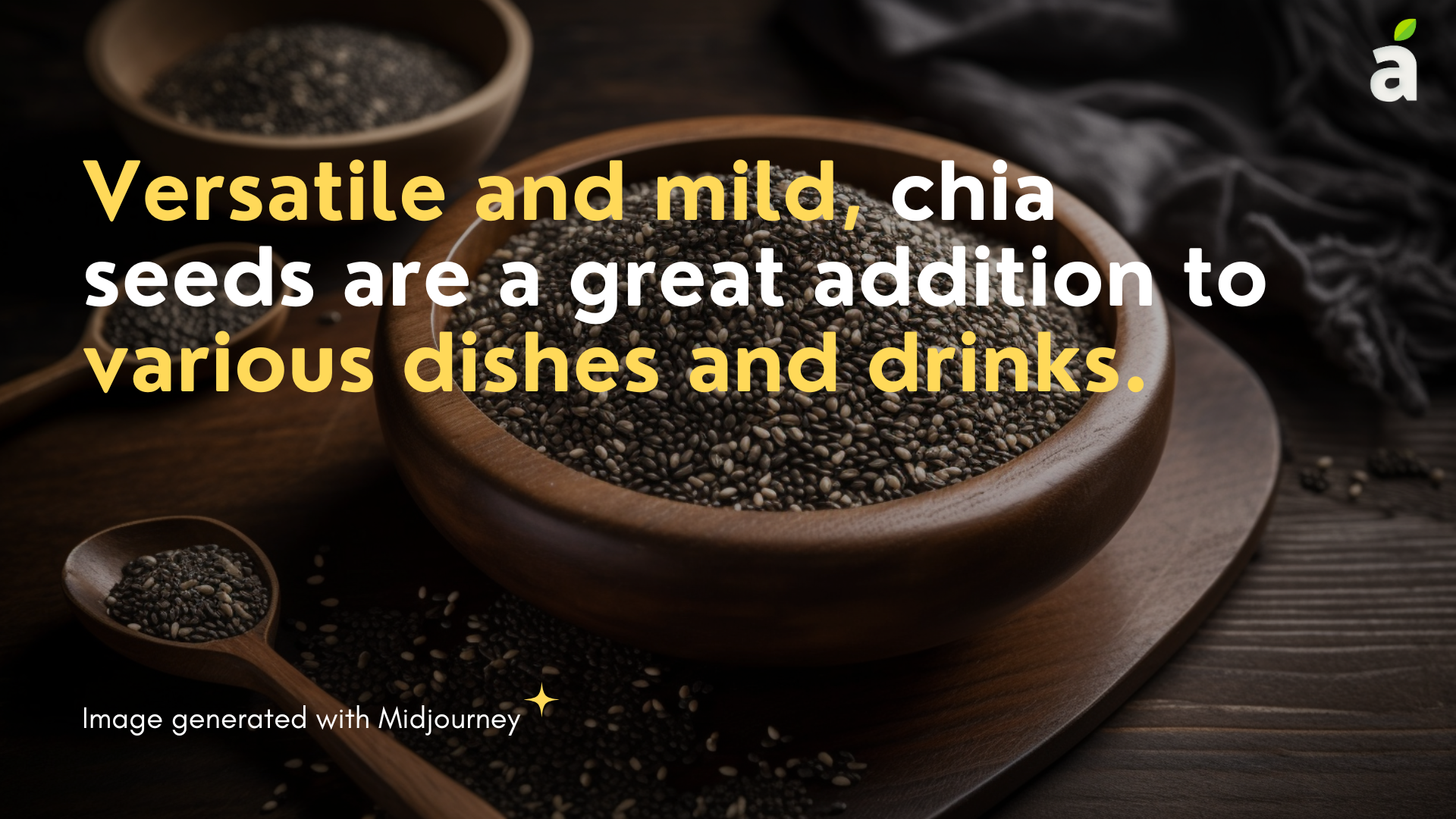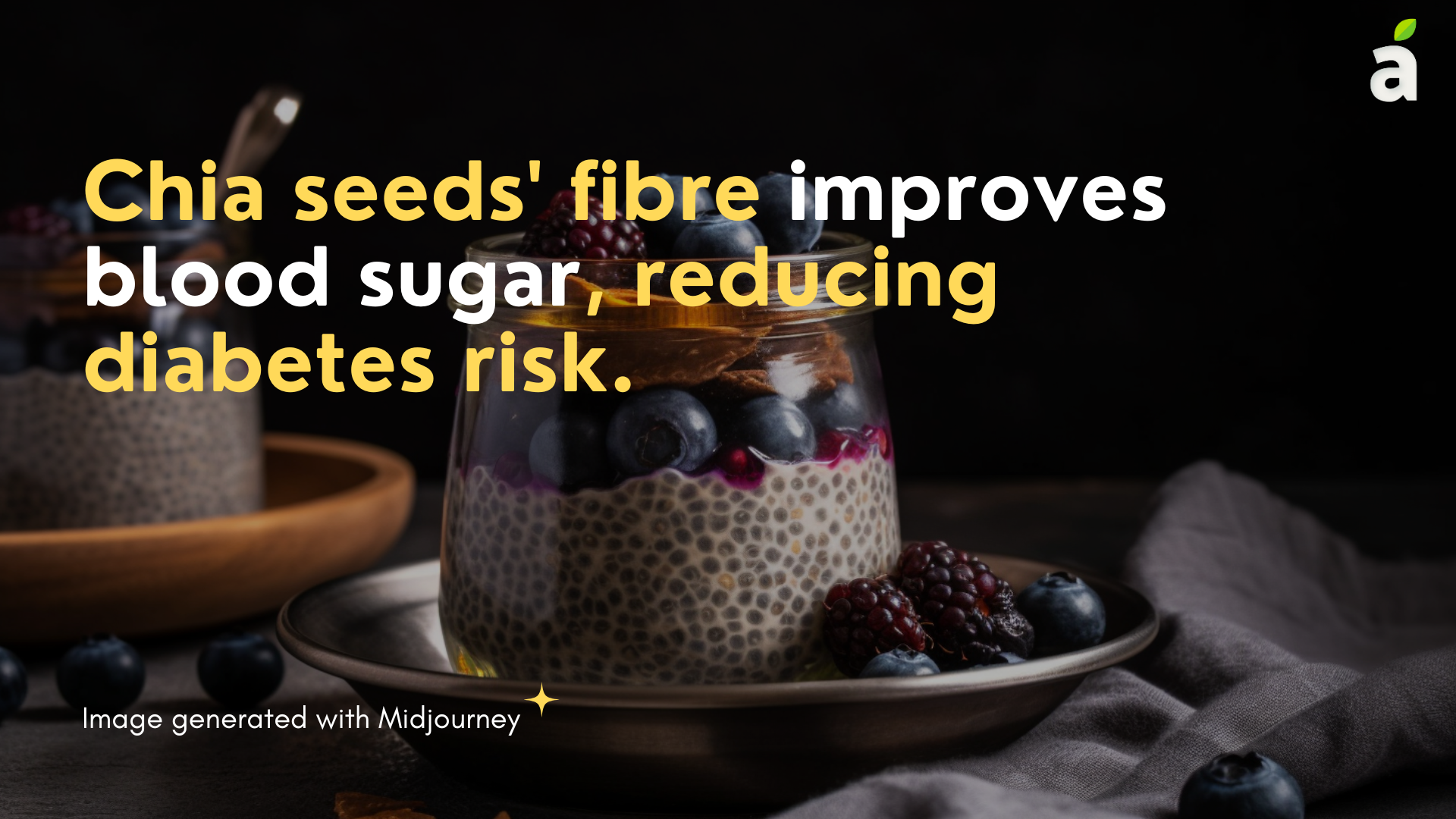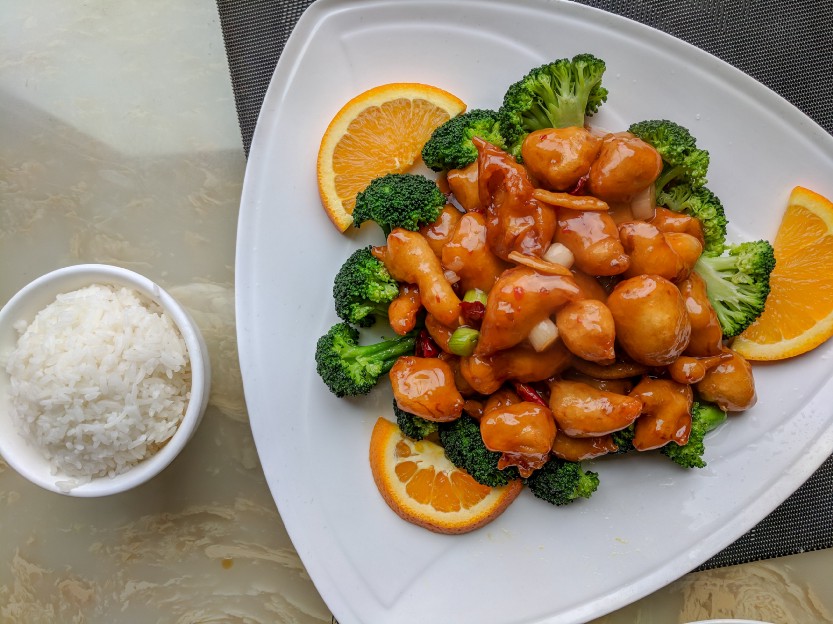Published Date January 24, 2003
Chia Seeds: A Nutritional Powerhouse
By Naurin Ansari
3 min read
Last update date: January 24, 2003

Chia seeds have gained immense popularity in recent years due to their impressive nutritional profile and numerous health benefits. These tiny seeds, derived from the Salvia hispanica plant, have been consumed for centuries by ancient civilizations such as the Aztecs and Mayans.
Today, chia seeds are recognised as a superfood that packs a punch regarding their nutritional value. In this blog, we will delve into the wonders of chia seeds, exploring what they are, and why you should consider incorporating them into your diet while addressing any potential side effects.
What are Chia Seeds?
Chia seeds are small, oval-shaped seeds that come from the plant Salvia hispanica, which belongs to the mint family. They are native to Central and South America and were revered by ancient civilizations for their remarkable health benefits. These seeds are highly nutritious, offering a rich source of fibre, protein, healthy fats, vitamins, minerals, and antioxidants. Their versatility and mild flavour make them an excellent addition to a variety of dishes and beverages.
Chia seeds are small, oval-shaped seeds that belong to the mint family. They have a rich nutritional profile, containing high levels of dietary fibre, omega-3 fatty acids, protein, vitamins, minerals, and antioxidants. With their mild flavour and versatility, chia seeds can be easily incorporated into various dishes and beverages.
Chia seeds are renowned for their impressive nutritional content. They are a plentiful source of omega-3 fatty acids and dietary fibre, with approximately 10 grams of fibre per ounce (equivalent to about 2 tablespoons). Additionally, chia seeds provide essential minerals such as iron, calcium, magnesium, and zinc.
Recent studies suggest that including chia seeds in your regular diet may have potential cardiovascular benefits, such as lowering cholesterol, triglyceride levels, and blood pressure. While chia seeds show promising potential, it is essential to approach their health benefits with caution.[1]
Why Should You Eat Chia Seeds?
Chia seeds offer numerous reasons to include them in your diet:
- Nutritional Powerhouse: Chia seeds are packed with essential nutrients, including dietary fibre, omega-3 fatty acids, protein, calcium, magnesium, and antioxidants, all of which contribute to overall well-being.
- Digestive Health Support: The high fibre content of chia seeds promotes a healthy digestive system, aiding in regular bowel movements and preventing constipation. The gel-like substance formed when soaked in liquid can provide relief from digestive issues.
- Energy and Hydration Boost: Chia seeds can absorb liquid, providing hydration and a sustained release of energy. This makes them an excellent choice for maintaining energy levels, especially for athletes.
- Weight Management Aid: The combination of fibre and protein in chia seeds promotes satiety and can help control appetite, reducing food cravings and preventing overeating. The healthy fats in chia seeds also contribute to a feeling of fullness.
- Rich in Antioxidants: Chia seeds contain powerful antioxidants that fight free radicals, reducing the risk of heart disease, cognitive decline, and certain types of cancer.
- Blood Sugar Regulation: The high fibre content in chia seeds can help reduce insulin resistance and improve blood sugar levels, lowering the risk of metabolic syndrome and type 2 diabetes. Chia seed consumption has also shown a lower blood sugar response compared to traditional bread.
- Bone Health Support: Chia seeds are a good source of bone-healthy nutrients like magnesium, phosphorus, and calcium, which are essential for maintaining strong bones.
Incorporating chia seeds into your diet can provide various health benefits, but it's important to remember to consume them in moderation and as part of a balanced diet.[2][3]
Side Effects of Chia Seeds
While chia seeds offer numerous health benefits, it's important to consume them in moderation and be aware of potential side effects.
- Digestive Discomfort: While consuming adequate fibre is beneficial for digestion, it's important to avoid excessive intake, as it can lead to stomach and gastrointestinal issues.
Chia seeds are known for their high fibre content, and consuming too much fibre may cause discomforts such as diarrhoea, constipation, bloating, and intestinal gas.
To prevent these side effects, it is recommended to start with smaller quantities of chia seeds and gradually increase the intake, allowing your body to adjust. - Allergic Reactions: While allergic reactions to chia seeds are rare, individuals with known allergies to other seeds or plants in the mint family may be at risk.
Symptoms such as hives, itching, or swelling after consuming chia seeds should be taken seriously, and medical advice should be sought. Although a few cases of allergic reactions have been reported, they are not common.[4][5][6][7]
Takeaway
Chia seeds have rightfully earned their reputation as a nutritional powerhouse. With their abundance of essential nutrients, digestive benefits, energy-boosting properties, and potential support for weight management, chia seeds offer a wide range of advantages for overall health and well-being.
However, it is crucial to consume them in moderation and be mindful of potential side effects, particularly about digestive discomfort and individual allergies or medication interactions.
By incorporating chia seeds into a balanced diet, you can harness their remarkable nutritional benefits and enjoy their versatility in a variety of delicious recipes.
References
- https://www.eatright.org/food/vitamins-and-supplements/nutrient-rich-foods/what-are-chia-seeds
- https://www.healthline.com/nutrition/11-proven-health-benefits-of-chia-seeds
- https://www.webmd.com/diet/health-benefits-chia-seeds#1
- https://www.medicalnewstoday.com/articles/side-effects-of-chia-seeds#risks
- https://www.healthline.com/nutrition/chia-seeds-side-effects#TOC_TITLE_HDR_6
- https://timesofindia.indiatimes.com/life-style/food-news/lesser-known-side-effects-of-chia-seeds-that-can-silently-ruin-your-health/photostory/91893446.cms#:~:text=Yes%2C%20excessive%20intake%20of%20chia,fiber%20can%20worsen%20gut%20health.
- https://www.bobsredmill.com/blog/healthy-living/chia-seeds-good/#:~:text=Chia%20Seeds%20Can%20Lead%20to%20Stomach%20Problems&text=Chia%20seeds%20are%20extremely%20high,constipation%2C%20bloating%20and%20intestinal%20gas.
Choose Healthy With Us.
Know the real truth about your food. Stay informed and healthy, for free.

Download the App Now
Certified nutritionists trust our food recommendations. Safe to say, so can you :)











